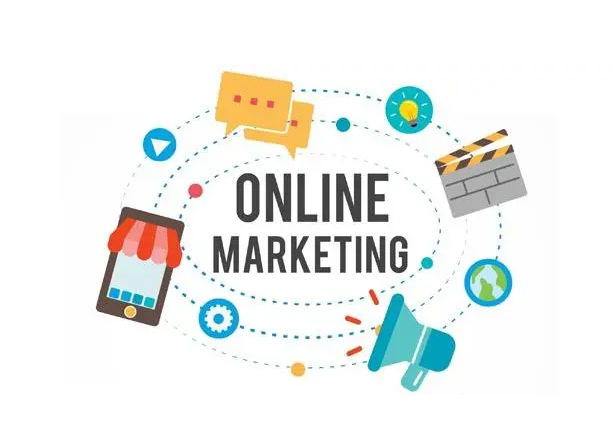10 Things Lodge, Camp & Resort Owners Need To Stop Doing Now
1. Not paying attention to and acknowledging online reviews:
Ignoring online reviews is essentially ignoring your guests. It’s also a huge opportunity missed to add more value or potentially win a guest back.
Most hospitality property owners chalk a bad review up to the former guest being dramatic. Resolving complaints is key whether they are valid or invalid. A customer just wants to be heard and sometimes that is enough.
Every review must be attended to. This is your chance to get valuable feedback on how your guests are experiencing your hospitality operation and to find out what needs improving so that your business can be as successful as possible.
Do not ignore reviews. Read them. Respond to them.
2. Basing Your Rates on Competition Rather Than Value:
If your hospitality property doesn’t have a service or amenity that your competitors property does, and vice versa, then a guest surely won’t expect to pay the same rate if that amenity that they value is missing.
If you are charging the same rate as your competitors but offer fewer amenities then you can expect your business will be hurt by a lack of return guests.
Price should always reflect the guest’s perceived value
Be sure to audit your rates annually and adjust them to reflect the experience you are providing and the value offered in comparison to your competitors. Make sure to be honest with yourself when comparing the experience your lodge offers in comparison to your competition’s. This will require some research time but it will be worth the effort.
3. Improperly Managing Inventory:
On the surface, the hospitality service sector runs on its staff and its environment, but a deeper look and it’s as reliant on inventory as any other industry. Whether it’s cooking ingredients, alcohol or guest towels, hospitality properties need a lot of items on hand that have a direct impact on the guest’s experience and your bottom line.
Waste and theft are a big problem in the hospitality industry. It’s well worth re-examining your current inventory management system. The right inventory management system can help you identify cost savings, boost productivity and collect more meaningful information about your guests.
A quick and affordable fix is to re-evaluate your storage areas. Installing a better shelving system to keep food inventory well organised and do what you can to control the temperature – the storage lives of most foods are cut in half by every 10°C increase. Also, ensure that high value stock areas are secured and that there’s an inventory sheet
4. Exhibiting frustration with slow bookings:
Every hospitality business has slow periods and since most of the new or less experienced owners lack business backgrounds, it can be discouraging to see “nothing working.” Vacation rental marketing is an ongoing activity that must be maintained. Ultimately the work will pay off.
Owners/managers need to stay up to date on their property’s conversion rates. In other words, what standard is “normal” for converting an inquiry to an actual reservation? Is it 1, 2, 3 or 4 inquiries for every one booking? Lose track of this rate and you’re in the dark.
5. Not maximizing financing opportunities:
Hospitality business financing will require you to provide information about your business’ cash flow by providing account statements. If you can’t document business revenues, you may lose out on certain financing opportunities.
There’s a lot of cash business that takes place within hospitality operations. It’s important that all of this income is reflected in your account statements when it comes time to apply for financing or leading up to a potential sale.
6. Paying off loans and debt too quickly:
Traditional thinking is that when you have extra money, you use it to pay whatever is due next or to make an extra payment on whatever the highest interest cost is on your balance sheet and pay it off first.
A better idea may be to go for 3-6 months paying only the minimum amount on each debt and apply the additional money to the area of the business that is currently most vulnerable instead. This will ease your stress and improve your business far more than the benefit of paying down the equivalent amount of money in debt.
7. Unwisely imitating competitors:
Differentiation in the hospitality industry is difficult to achieve. The ease of imitation is tempting in order to eliminate your competitor’s attempt at differentiation. The problem is finding the right balance between profitable innovation and strategic imitation.
Research suggests that the original innovator is usually more profitable than the imitator. Think about what your business’ strengths are before imitating a competitors innovation because adopting it may take away from further developing your business’ strengths.
8. Convincing themselves that all marketing costs money:
Don’t assume that all vacation rental marketing costs money. You may not have the marketing budget of your competitors but there are ways you can bootstrap it for a while. You can compensate for your lack of marketing budget spending with effort and ingenuity.
9. Adding gimmicks when the basics are a mess:
The purpose of a hospitality operation is to provide a good experience for your guests.
All hospitality operations (even fishing and hunting lodges) are expected to be clean and have everything in working order – air conditioners, furniture, appliances, sink, toilet, shower, etc. Your staff must be friendly and helpful. These are the basics of a successful hospitality operation.
Often times, though, hospitality operations lacking in these basics think they’re distracting the guests by offering gimmicks. They attempt to distract by offering wifi, satellite, extra furniture, etc. Regardless, this tactic doesn’t work. Hammer out the basics first, and then, down the line, maybe you’ll have the funds and reputation to begin to offer more amenities.
10. Focusing on the topline and not the bottom line:
If you hear that your competitor has reached a certain revenue amount or hired 10 more employees, your first instinct is business must be good for them, correct? Yet “under the hood” your operation could be operating at a higher level of profitability and may well be the stronger business overall.
Every dollar that you create and protect as bottom line profit is much more valuable to your business and to you as an owner than the revenue dollar you create at the top.
Can you streamline processes? Save on inventory? Save on taxes? These are the more valuable questions you should be asking yourself.
As much as all hospitality owner’s are in the industry to make money, I know that this industry is a community as well and we want everyone to succeed. If you found any of these items valuable, please share this article with your fellow hospitality owners and operators. If there is any other hospitality industry issues or topics you think would be important for us to address, please let us know in the comments section below.
This article has been prepared by Frontier Hospitality Advisor for general information only. Frontier Hospitality Advisor makes no guarantees, representations or warranties of any kind, expressed or implied, regarding the information including, but not limited to, warranties of content, accuracy and reliability. Any interested party should undertake their own inquiries as to the accuracy of the information. Frontier Hospitality Advisor excludes unequivocally all inferred or implied terms, conditions and warranties arising out of this article and excludes all liability for loss and damages arising there from.


